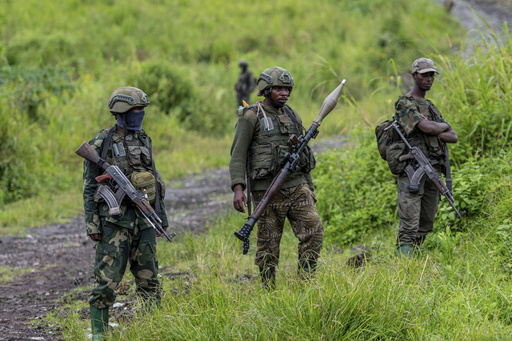
KINSHASA, Congo — On Tuesday, the Congolese government leveled serious accusations against the M23 rebel group, alleging that it has been committing acts of “ethnic cleansing” in the eastern regions of the country.
Interior Minister Jacquemain Shabani condemned what he described as the “massive arrival of foreign populations” in the Rutshuru and Masisi territories of North Kivu province, where he claimed that local residents had been driven out through violence.
“This situation is what defines ethnic cleansing,” Shabani stated emphatically.
These claims from Congo’s government surfaced shortly after the M23 announced that it had appointed local administrators in areas it asserts control over.
The eastern part of Congo, abundant in minerals, has been a hotspot for conflict, with over 100 armed groups competing for dominance close to the Rwandan border. This region has seen a surge in violence since the M23 rebel faction has come back into prominence. The ongoing violence has resulted in one of the world’s gravest humanitarian crises, displacing more than 7 million people, many of whom are unreachable by aid organizations.
The M23, or March 23 Movement, primarily consists of ethnic Tutsi fighters who separated from the Congolese army more than ten years ago. The group gained notoriety in 2012 when it captured Goma, which was then the largest city in eastern Congo, located right on the border with Rwanda.
Congo has also accused Rwanda of being complicit in war crimes in the eastern region and has been supported by U.S. and U.N. experts who allege that Rwanda provides military assistance to the M23. Despite these allegations, Rwanda denies any involvement but acknowledged in February that it had stationed troops and missile systems in eastern Congo, citing concerns over a buildup of Congolese military forces near the border. U.N. experts estimate that as many as 4,000 Rwandan soldiers might be present in Congolese territory.
While a truce brokered by the United States and Angola in July has helped to lower hostilities between Rwandan and Congolese forces, clashes still persist between the M23 and other militia groups.
In August, violent confrontations between M23 rebels and pro-government militias resulted in the deaths of 16 villagers, marking a grave violation of the truce that aims to assist millions of displaced individuals.
